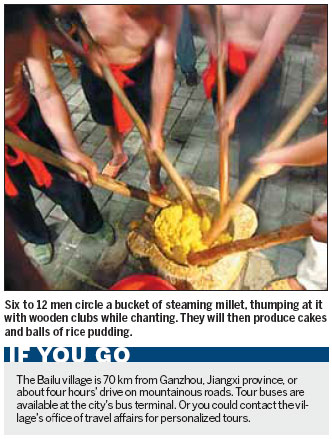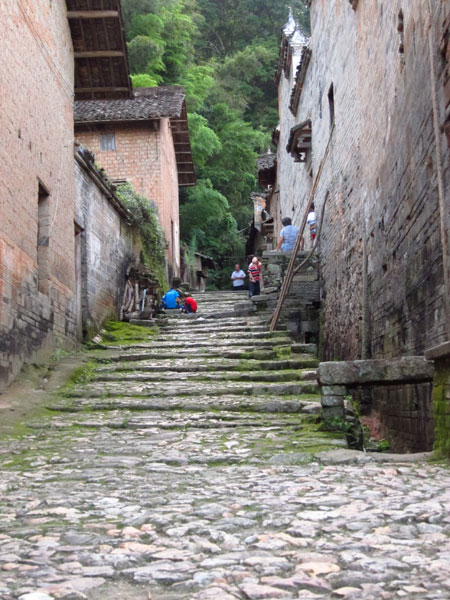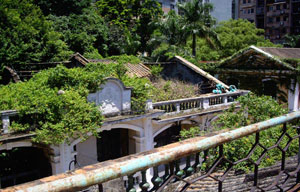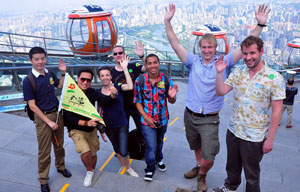Geomancy city

One descendant was so well-off that when he dispensed his fortunes among his sons in his twilight years, some 20 patios were filled with bars of silver and gold.
Mansions aside, the village is a picturesque and friendly hideout with clear water and balmy breezes.
One of the attractions of the village is the Zhong family temple, a high-ceilinged and grand worship sanctuary.
There, you will be greeted with bowls of homemade rice wine - sweet, cool and strong. Or bowls of tea that taste salty, warm and soothing. The tea is a mixture of ground peanuts, vegetables and sesame.
While sipping the wine or tea, you will most likely witness six to 12 men stripped to the waist circling a bucket of steaming millet, thumping at it with wooden clubs while chanting.

They will then produce cakes and balls of rice pudding - hot and smooth. The pudding goes well with the local dressing of soybean sauce and chilies. They also make crispy rice chips.
Occasionally, in the evenings, visitors can join in a show of fire.
All families chip in their share of tiles, wooden sticks, sulfur and most recently, kerosene for fuel. Strong young men lay them up and set the pointed pile on fire. Balls of flame would explode upward toward the starry sky.
The redder the tile gets, the more auspicious it is supposed to be. It's good feng shui for those who witness the event. Most people stay for hours until only the ashes remain.
Originally, the fire event was the Hakka ancestors' annual autumn harvest celebration to thank gods for good yields and wish for a plentiful new year.
The residents of Bailu are migrants from the north. Although they do not farm anymore, they continue to honor the tradition that brings good fortune to them.
As you return to your room for a rest, meditate on the engraved symbols around - snakes, toads, deer and bats. If you happen to dream of the egrets, good fortune may come your way.
















